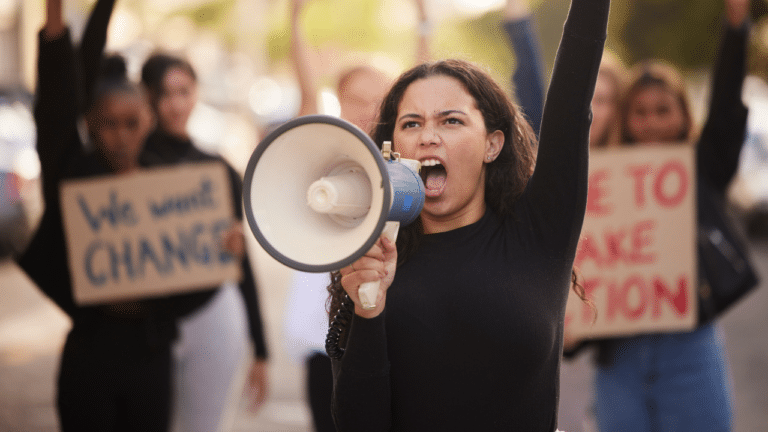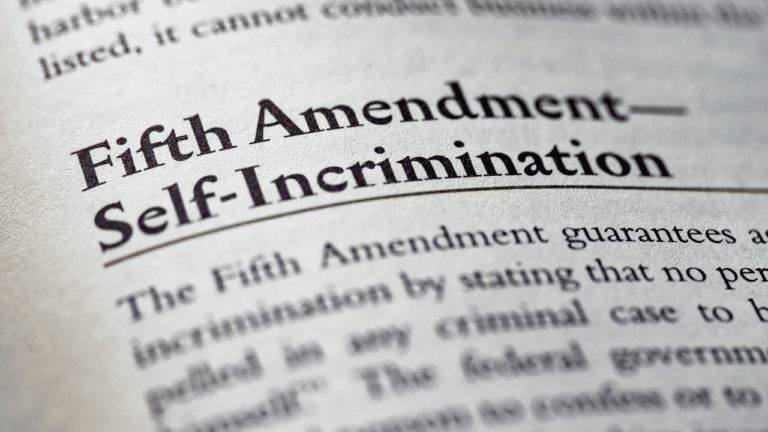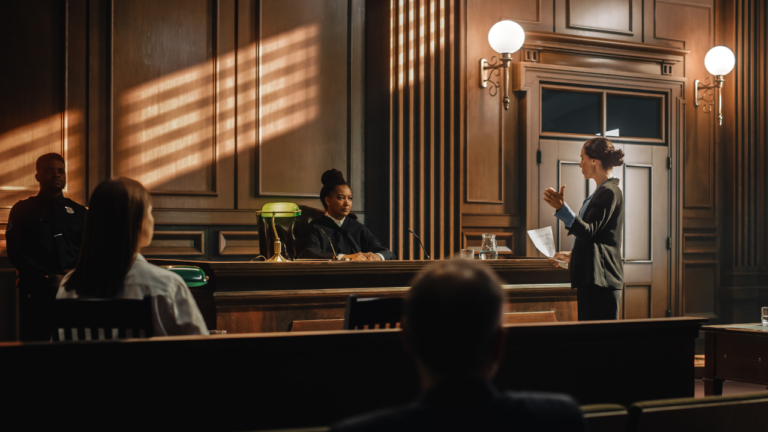The Twenty-Third Amendment allows residents of Washington, D.C. to vote in presidential elections.
WHAT IS THE TEXT TO THE TWENTY-THIRD AMENDMENT TO THE CONSTITUTION?
U.S. CONST. Amend. XXIII. D.C. RESIDENTS GRANTED VOTING RIGHTS IN PRESIDENTIAL ELECTIONS
Section 1: The District constituting the seat of Government of the United States shall appoint in such manner as the Congress may direct:
A number of electors of President and Vice President equal to the whole number of Senators and Representatives in Congress to which the District would be entitled if it were a State, but in no event more than the least populous State; they shall be in addition to those appointed by the States, but they shall be considered, for the purposes of the election of President and Vice President, to be electors appointed by a State; and they shall meet in the District and perform such duties as provided by the twelfth article of amendment.
Section 2: The Congress shall have power to enforce this article by appropriate legislation.
WHAT IS THE HISTORICAL ORIGIN OF THE TWENTY-THIRD AMENDMENT?
The Residence Act and the Compromise of 1790
When the time came to select a permanent capital for the newly established United States, the Founding Fathers had many discussions over its location. Prior to and during the Revolutionary War, the U.S. capital was in different cities such as Philadelphia and New York. Despite this precedence, the Framers agreed that the capital can no longer be in any city because they believed no one state or city should have that kind of power over the others. Therefore, the Founding Fathers decided to create a district as the nation’s capital. But where should it go? New Yorker Alexander Hamilton wanted the new capital to be closer to the north, while Virgininan Thomas Jefferson wanted it closer to the south.
The Framers faced a related dilemma: who would assume the states’ unpaid debts accrued during the Revolutionary War? Hamilton and the northern states wanted the federal government to absorb the debt. However, Jefferson and fellow southerner James Madison balked at the idea. Since the south had already paid most of their debts, they did not think it was fair for the other states to benefit from such a bailout.
Hamilton, Jefferson, and Madison met privately to discuss both situations, and this exchange came to be known as the Compromise of 1790. Although no one knows exactly what was said in the “room where it happened”, the result was that everyone got what they wanted. The federal government took on the states’ debts, while the capital was built between the Potomac and Anacostia Rivers. President George Washington selected the exact location himself, and portions of underdeveloped territory from Maryland and Virginia were absorbed into the new district.
Voting Practices in D.C. Prior to the Twenty-Third Amendment
Because Washington, D.C. wasn’t (and still isn’t) a state, residents were denied the right to vote in presidential elections or members of Congress. However, that doesn’t mean that they were not allowed to vote at all. D.C. denizens experienced several changes to voting practices over the years. In 1800, they were able to vote for congressmen for either Maryland or Virginia, depending on which state formerly owned the land in which they resided. For the next two decades, choosing a mayor switched from being appointed by the president to being appointed by a council. D.C. residents were able to exercise their right to vote again from 1820 to 1870 by being allowed to elect their own mayor. However in 1871, Congress inexplicably took over local government and ended this practice.
It has been highly suggested that the Fifteenth Amendment and the Reconstruction Era brought upon this sudden restriction. When African-American men started to vote in local elections and become more involved in local government, Congress stepped in and gave the president the sole authority to appoint D.C. local leaders. A few years later, in 1877, John Tyler Morgan, a former Confederate soldier turned senator, was quoted as saying that Congress had to “burn down the barn to get rid of the rats…the rats being the negro population and the barn being the government of the District of Columbia.” This law lasted almost a hundred years until the ratification of the Twenty-Third Amendment in 1961.
WHAT DOES THE TWENTY-THIRD AMENDMENT DO?
The Twenty-Third Amendment removed restrictions from residents of the District of Columbia such that they may vote in presidential and vice-presidential elections.
Nonvoting Delegates to Congress
After the ratification of the Twenty-Third Amendment, there was a serious push for D.C. representation on the Congressional floor. In 1970, Congress agreed to include a nonvoting D.C. delegate on the House of Representatives. Similar to nonvoting delegates of U.S. territories such as Guam and Puerto Rico, the D.C. nonvoting delegate is allowed to sit in meetings and take part in congressional committees and subcommittees. However, they are still not allowed to vote for members of Congress.
Attempts at Statehood
While the people of Washington, D.C. highly welcomed the Twenty-Third Amendment., many believe that it still wasn’t good enough. To them, a full-fledged state is the primary goal. An organization called D.C. Statehood argues it isn’t fair for D.C. residents to have the same responsibilities as state residents (i.e. paying taxes, serving in juries) but not the same rights.
For decades there has been a push for statehood. In 1979 Congress passed the D.C. Voting Rights Amendment, which would have given full state rights to the district. Unfortunately not enough states ratified it. In 1993 the “New Columbia Admission Act” failed miserably. In 2020 and 2021 a bill called H.R. 51 was introduced to the House of Representatives. The House passed it both times and even received support from President Joseph Biden. In 2023 the bill was introduced to the Senate, but received no votes.
TWENTY-THIRD AMENDMENT
Because the Founding Fathers were concerned that placing the nation’s capital in any state could lead to abuse of power, they decided instead to create a federal district with alternative rules for voting rights. Citizens of Washington, D.C. could not vote in presidential elections or for members of Congress. For over 170 years the district was subjected to changes in voting laws for local government officials, but was finally granted the right to vote for the president and vice-president when the Twenty-Third Amendment was ratified in 1961.
The amendment however, still does not allow D.C. citizens to vote for members of Congress nor does it grant them statehood. Congress allows a nonvoting delegate to sit in on House committee meetings and participate in certain activities, but is not allowed to vote. Meanwhile, politicians have attempted to pass bills that would make Washington, D.C. a state, but all have failed.
TWENTY-THIRD AMENDMENT COURT CASES
To date, there have been no Supreme Court cases related to the Twenty-Third Amendment. The case featured below was from the U.S. Court of Appeals for the Ninth Circuit and is an example of other nonstates hoping to achieve similar voting rights as Washington, D.C.
- In Atty. Gen. of Territory of Guam v. United States (1984), the Attorney General of Guam sued the United States in the name of its residents, asking for the right to vote in presidential and vice presidential elections. The court dismissed the case because according to the Constitution, individual citizens do not vote for the president and vice-president, but through the Electoral College. Since Guam does not have members in the Electoral College, they are not eligible to vote. Furthermore, the court argued that, like the case of Washington, D.C., an amendment would need to be created for Guam to earn electors to vote.
The plaintiffs countered that since the Twenty-Third Amendment, the Supreme Court has been interpreting Congress’s powers over national elections more broadly, citing a few court cases. However, the Ninth Circuit explained that said court cases are not applicable to their current situation.












